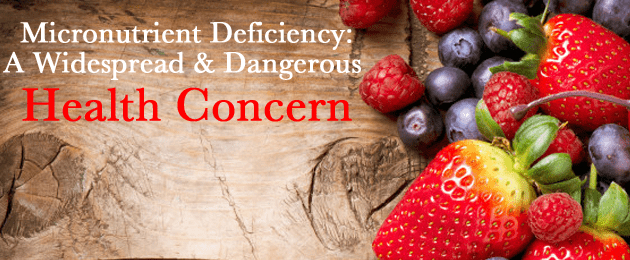Micronutrient deficiency is the most widespread and dangerous health concern of the 21st century, affecting nearly 100% of the people on this planet.
Did you know that more than 2 billion people in the world suffer from micronutrient deficiencies? These are largely caused by dietary deficiencies of vitamins and minerals, even small amounts can result in detrimental effects. We here at Calton Nutriton believe that if a condition or disease can be directly linked to a micronutrient deficiency, then it can be prevented and/or reversed through sustained sufficiency of the deficient micronutrient(s).
Our ultimate goal, is micronutrient awareness.
Regardless of the diet you are currently on (paleo, gluten free etc.), we want to be sure you realize the importance of the micronutrients in the food and how the body absorbs them and uses them—micronutrient deficiency is a real concern. Take a look at these facts:
- A low calorie diet means less food and fewer nutrients.
- A vegan diet is 73% deficient in essential micronutrients such as B12, which is found in animal products (and results in low energy), and Omega-3 oils, which mostly come from fish.
- If you are eating soy, spinach, grains, and legumes every day you are potentially consuming high levels of oxalic acid, which depletes calcium and magnesium.
- The Paleo diet is the most popular right now. People think they are eating this ancestral diet so they must be getting all they need, but the diet is deficient in calcium and chromium.
- Low carbohydrate diets mean cutting out an entire class of foods. You are losing and reducing all the micronutrients found in those foods including B2, B9, calcium, magnesium, and iron.
- Gluten free diets are usually followed by those with celiac or who have gut issues to begin with, so they are already dealing with malabsorption. They also experience deficiencies in calcium, magnesium, vitamin D, iron, and B12. The vitamin B12 helps keep the amino acid homocysteine at the right level, which may help decrease the risk of heart disease and is essential to red blood cell production.
Did you or someone you know made the mistake of putting your diet philosophy first? We want you to Download this exclusive PDF that explains the details of Jayson's 2010 study on common diets, and help us share what was uncovered!
We want our readers to know that micronutrient sufficiency needs to come first and then let your diet philosophy follow behind. Micronutrient sufficiency relies on food quality, which is why we're urging our readers to become Nutrivores! Eating foods with genetically modified organisms (GMO) such as corn, soy, milk, sugar beets, cottonseed, alfalfa, canola oil, and aspartame may lead to toxic side effects; the genetic material (DNA) in these foods are altered in ways that are not naturally occurring. The majority of the standard American diet is composed of Naked Calories — or foods that have been stripped of their micronutrients due to farming practices, processing, and manufacturing processes, and even ways of cooking (e. g., microwaves, deep frying). The solution? We need to make changes, in what we eat and how we live in order to decrease micronutrient saboteurs.
One of the reasons we wrote Rich Food Poor Food, is to educate people on the importance of looking for micronutrient rich foods in the local supermarket, not always simply searching for what's on sale.
Did you know that 50% of the population pops a multivitamin? Did you also know that 80% of the micronutrients in those vitamins are not being absorbed? If you head over to ABCsofSupplementation.com you can learn about our ABC's of supplementation, why micronutrient absorption is such a large concern of ours, and what you can do about it.











